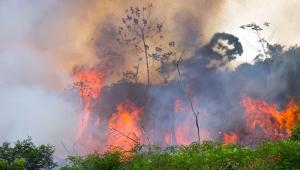
In 2010 hundreds of children were dying in northern Nigeria and no one could figure out why. It was discovered that lead poisoning was the cause, rapidly turning into the worst case in history, killing 400 children. Following the global recession villagers living in poverty had turned to mining gold deposits, but the gold was mixed with lead and clouds of lead dust had dispersed across local villages. In response the Nigerian government promised funds to clean up the lead and provide medical care.
But by mid-2012 there was no sight of the money, so a group of young Nigerians who founded Connected Development (CODE) stepped in to track the funds. They launched ‘Follow The Money Nigeria’ and published stories from the affected areas in a social media campaign that included a ‘tweet-a-thon’. In less than a year they had reached over one million people.
And it worked. Under the pressure of the powerful public media campaign government, officials released the promised $5.3m. By July 2014 the clean-up was complete. Over 1,000 children had been screened and enrolled in lead treatment programmes, Bagega’s health centre had also been refurbished and the village’s roads improved. All through the power of the amplified voice.
This is just one of many stories of where information is empowering communities to follow the flow of public money and make sure it is being invested in fighting poverty. From the rural villages of Ghana, the farmland of Mexico, to the oilfields of Azerbaijan - The ONE Campaign has collected almost 40 of these stories to show why transparency and access to information matter.
Here are a couple more stories worth shining a light on:
Almost 30% of English textbooks and 16% of science textbooks disappeared before reaching schools in Ghana. A grassroots group brought local community members together to track school budgets and textbook distribution systems. Corruption was uncovered, and the children of the 10 schools that were monitored finally received all their textbooks.
Liberia is one of 20 sub-Saharan African countries that depend on their rich natural resources. However, the country spends only $6 per person per year on basic services. From the publication of tax payments from extractives companies, it was discovered the mining company AmLib failed to pay the Liberian government $104,288. After a public information campaign AmLib paid the missing money and improved their financial internal procedures.
In 1996 it was discovered that only 13% of government funds reached primary schools in Uganda. The rest had been misappropriated by district officials. The uproar lead the Ministry of Finance to give national media monthly breakdowns of the money sent, which was reported in local languages. Parents and schools were taught how to use information to hold authorities to account. By 2001 90% of funds were reaching schools.
These stories prove to governments, businesses and citizens the real impact that information in the hands of people can make.
This is not just about the local level, because the local is connected to the global. The lack of data makes it really hard to say with any certainty (a problem in itself) but some estimates suggest that in 2013, for example, sub-Saharan Africa lost $74.6bn through illicit financial flows. If these funds could be recovered and taxed they could be invested in public services such as health and education and other crucial means needed to end extreme poverty. And the solution to this bigger problem lies not just in rural Nigeria, but in the global financial hubs of New York, Hong Kong and London.
The good news is that London will be the venue for a major international summit next month. ONE is calling for ambitious pledges on opening up company ownership, budgets and tax payments to the public so that we can see what’s going on. This ‘Fair Play’ package, if agreed and implemented, could be a game changer for those children in northern Nigeria and many more like them.
To read more inspiring stories of citizen action visit ONE’s Follow the Money portal.













